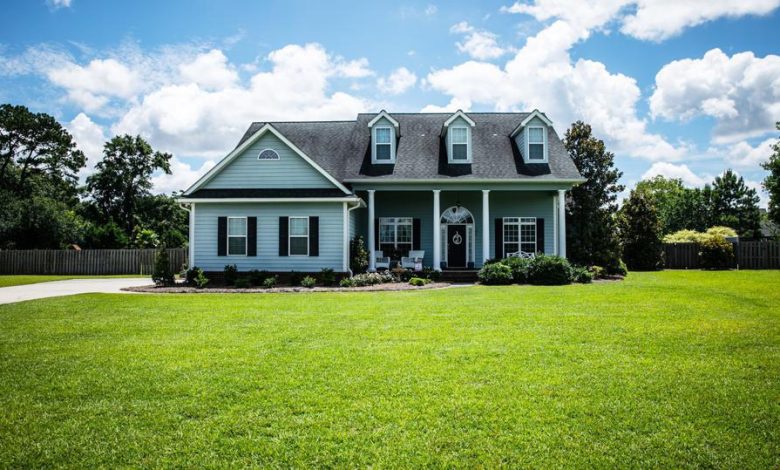Duplex home vs single family house: what should you buy?

Introduction
When it comes to purchasing a home, prospective buyers are often faced with the decision of choosing between a duplex and a single-family house. Each property type offers its own unique set of advantages and disadvantages, making the choice largely dependent on individual preferences, lifestyle, and investment goals. In this article, we will explore the key differences between duplex homes and single-family houses, along with the factors to consider when deciding which property type is best suited for your needs.
Duplex Homes: Overview and Benefits
A duplex home, also known as a semi-detached house, is a residential building that consists of two separate living units under one roof, typically sharing a common wall. Each unit has its own separate entrance, living spaces, kitchen, and utility connections. Duplexes can be an attractive option for a variety of reasons, some of which include:
- Investment Potential: Duplex homes offer the opportunity for rental income by living in one unit and renting out the other. This can help offset mortgage payments and other expenses, making home ownership more affordable. Additionally, duplexes can appreciate in value over time, offering potential capital gains upon listing the duplex for sale.
- Multi-Generational Living: Duplexes provide an ideal solution for families who wish to accommodate multiple generations under one roof while still maintaining privacy and independence. Each unit allows for separate living spaces, ensuring that both parties can enjoy their own space and autonomy.
- Lower Maintenance: As duplex homes share a common wall, there may be reduced maintenance costs compared to a single-family house, particularly in terms of exterior upkeep such as painting or roof repairs.
- Potential for Customization: In some cases, duplexes can be converted into a single, larger living space, providing flexibility for homeowners who may wish to combine the units in the future.
Single Family Houses: Overview and Benefits
A single-family house, also known as a detached home, is a standalone residential building that does not share any walls with adjacent properties. This type of property is often characterized by its independence and typically includes a private yard or garden. Some advantages of single-family houses include:
- Privacy: Single-family homes offer a greater degree of privacy compared to duplexes, as they do not share any common walls with neighbors. This can result in reduced noise transfer between properties and a more secluded living experience.
- Outdoor Space: Detached homes often come with more outdoor space, including larger yards or gardens. This can be particularly appealing for families with children or pets who require room to play and explore.
- Greater Freedom for Customization: As single-family houses do not share any structural elements with neighboring properties, homeowners often have more freedom to make alterations, additions, or renovations to their homes without impacting their neighbors.
- Potential for Higher Resale Value: Single-family homes for sale often have a broader appeal in the real estate market, as they cater to a wider range of potential buyers. This can result in higher resale values and a more competitive market when it comes time to sell the property.
Factors to Consider When Choosing Between a Duplex and a Single-Family House
- Lifestyle Preferences: Consider your lifestyle and personal preferences when choosing between a duplex and a single-family house. If you value privacy and independence, a single-family house may be a better fit. Alternatively, if you are open to sharing a common wall with neighbors and are interested in rental income or multi-generational living, a duplex may be the more suitable option.
- Budget Constraints: Duplex homes can be more affordable than single-family houses due to the potential for rental income. However, it’s important to weigh the costs of purchasing and maintaining a duplex against the potential rental income and appreciation in value over time.
- Location: The location of your desired property can play a significant role in your decision-making process. Duplexes are often found in urban or densely populated areas, whereas single-family homes may be more prevalent in suburban or rural settings. Consider the availability of local amenities, schools, and transportation options when deciding which property type is best for you.
- Future Plans: Consider your long-term plans when choosing between a duplex and a single-family house. If you anticipate needing more space in the future, a single-family house may offer greater potential for expansion. Alternatively, a duplex can provide the opportunity for rental income or multi-generational living arrangements as your family’s needs change over time.
- Maintenance Responsibilities: While duplex homes may have lower maintenance costs in some aspects, they also come with shared responsibilities between the two units. Ensure that you are prepared for the potential challenges that come with sharing a common wall, such as coordinating repairs and maintaining a positive relationship with your neighbor.
Conclusion
Ultimately, the decision between purchasing a duplex home or a single-family house will depend on your unique circumstances, preferences, and financial situation. By carefully considering the benefits and drawbacks of each property type, along with your lifestyle, budget, and future plans, you can make an informed decision that best suits your needs and aspirations in homeownership.
FRENCH TAGS
……………………………………………………………………………………





